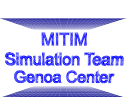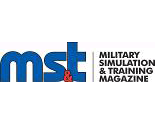DHSS 2020 Call For Papers
Ports and Littoral Protection
Chair: (a) Francesco Longo.
Affiliation: (a) University of Calabria (Italy)
Contacts: (a) f.longo@unical.it
Track Description
Freely flowing international trade, carried predominantly by ocean-going vessels, has been a major contributor to the global prosperity experienced in the second-half of the 20th century. In the U.S. and many countries worldwide, maritime traffic in ports and waterways is a critical component of national supply chains and the backbone of many economies. However, the proximity of major seaports to urban centers and the volume and diversity of seaport activities render them vulnerable targets, where even small incidents could have crippling economic effects. Increasingly important security operations must strike a balance between providing security and impeding the movement of cargo with the attendant economic costs, as any stoppage or appreciable slow-down in port operations impacts numerous supply chains, and extended stoppages necessitate diverting vessels to other ports, as was the case in the 2003 strike of longshoremen in the port complex of LA/LB.
The need to maintain efficient port operation sometimes conflicts with worldwide concerns about terrorism, drug smuggling and crime and with the resulting port security measures. This track will explore a wide variety of topics at the interface of port security, safety and port operations, with an emphasis on technical tools using mathematical modeling, risk analysis, and new algorithmic approaches to inspection of cargo, nuclear materials, vehicles entering ports, vessel movements in waterways and port operations. Such models can assist in analyzing the effectiveness of interdiction measures and the disruptive impact of high-consequence events in and around port complexes, as well as assessing the effectiveness of strategies to mitigate and recover from such events. These models can further help in effectively setting up the “Rules of the Road” in ports and waterways.
The following areas are of interest to the Ports and Littoral Protection Track:
- Port security and/or safety risk analysis.
- Port and waterway maritime traffic analysis and modeling.
- Cargo screening and inspection algorithms.
- Nuclear detection issues and algorithms.
- Analysis of container delays and costs due to cargo inspection.
- Cost and economic trade-off of port security.
- Allocation of port security funds.
- Effectiveness of CSI and C-TPAT cargo inspection and monitoring initiatives.
- Vessel scheduling and sequencing in waterways and canals .
- Analysis of vessel movements and delays in anchorages in ports.
- Modeling of vessel arrivals at ports and waterways.
- Accident probability modeling.
- Port security value tree modeling.
- Decision analysis and multi-objective trade-off models in port security analysis.
For further information please contact Francesco Longo.










































